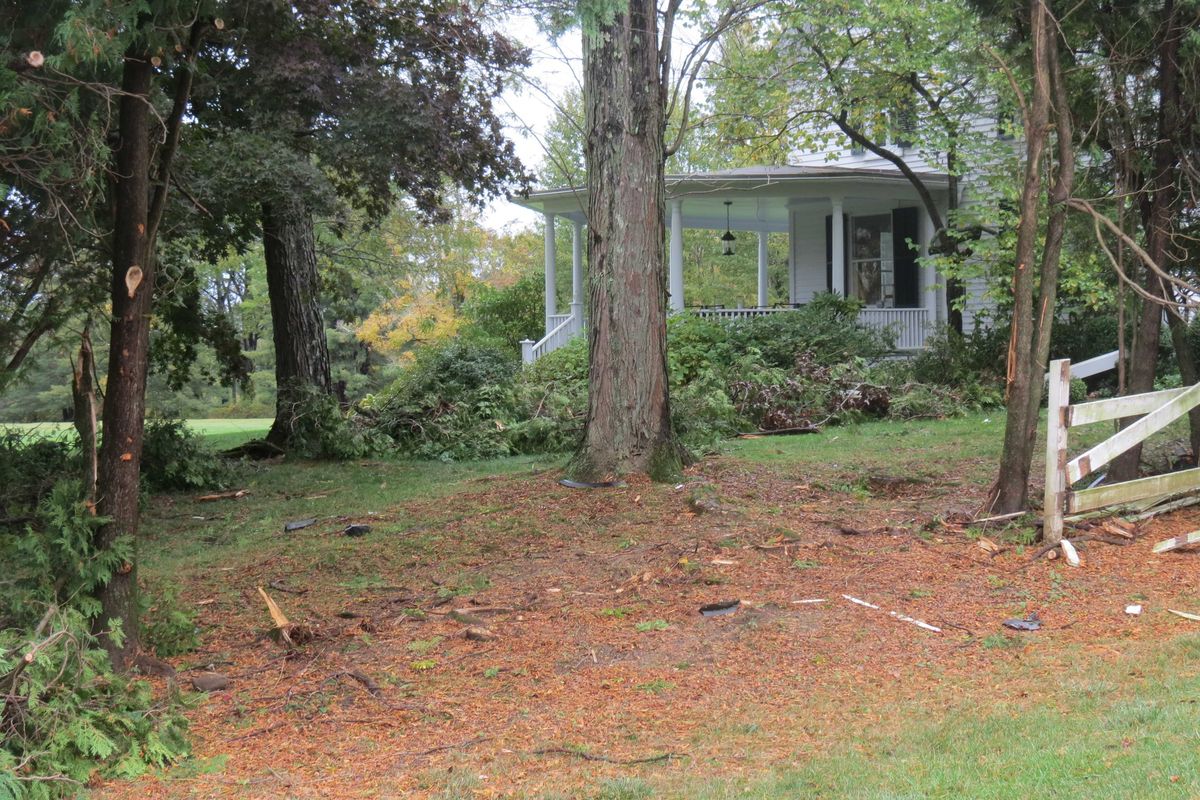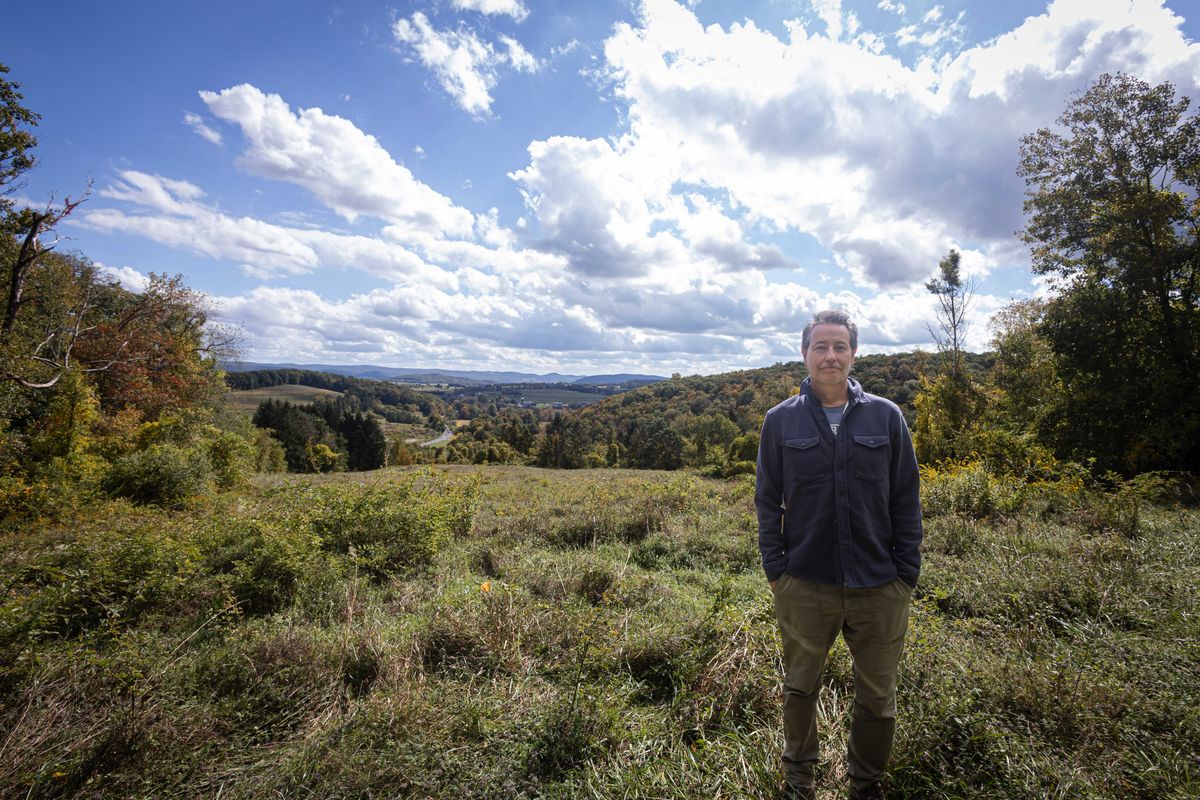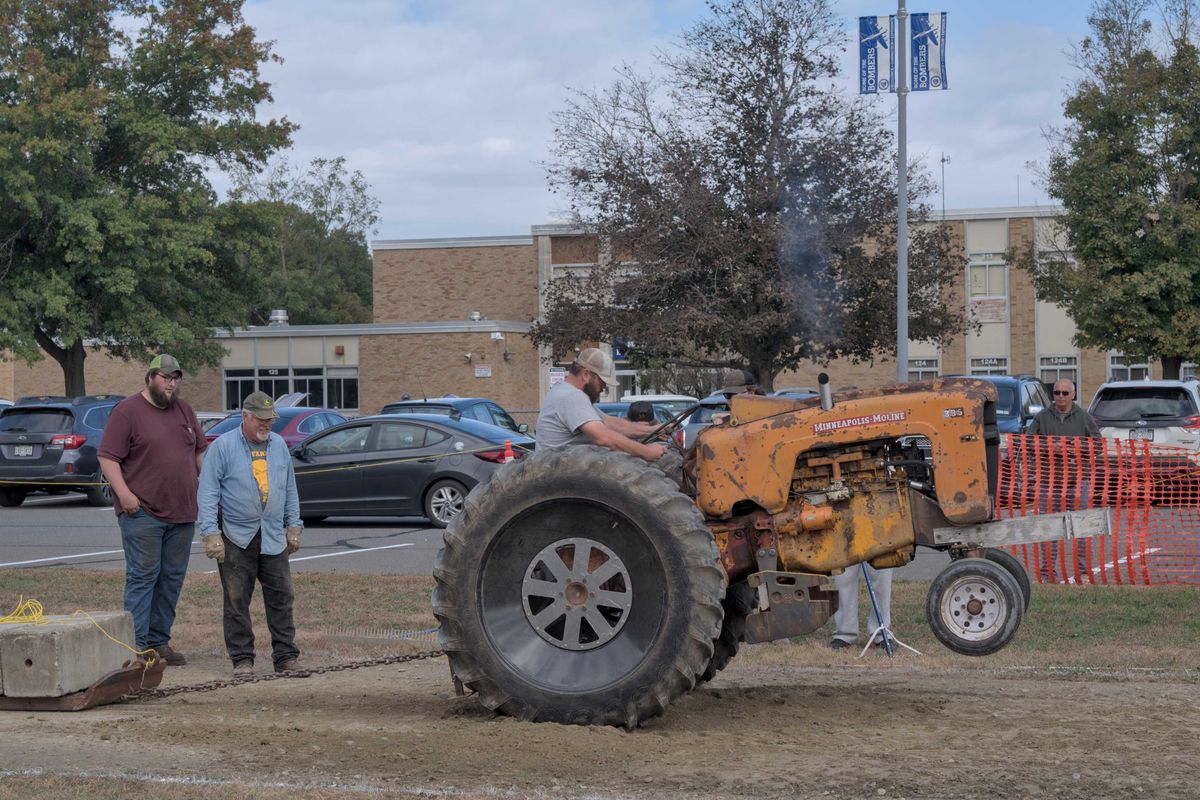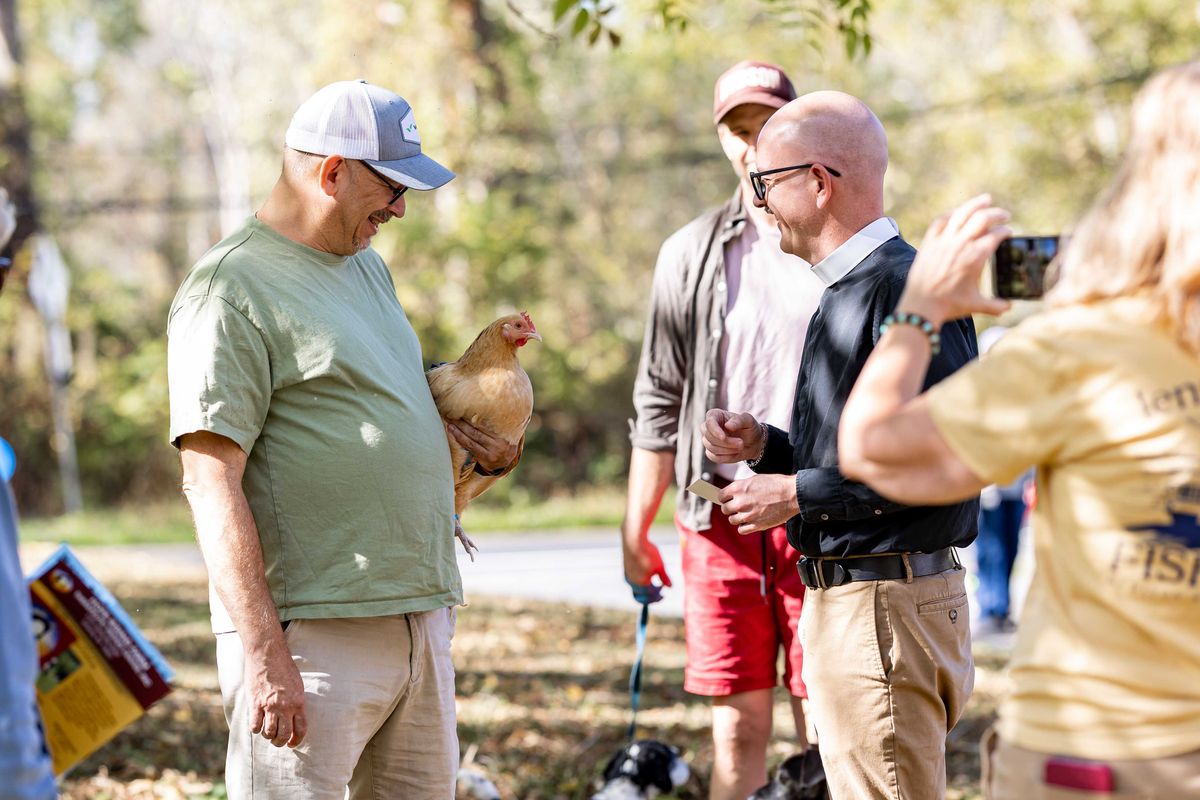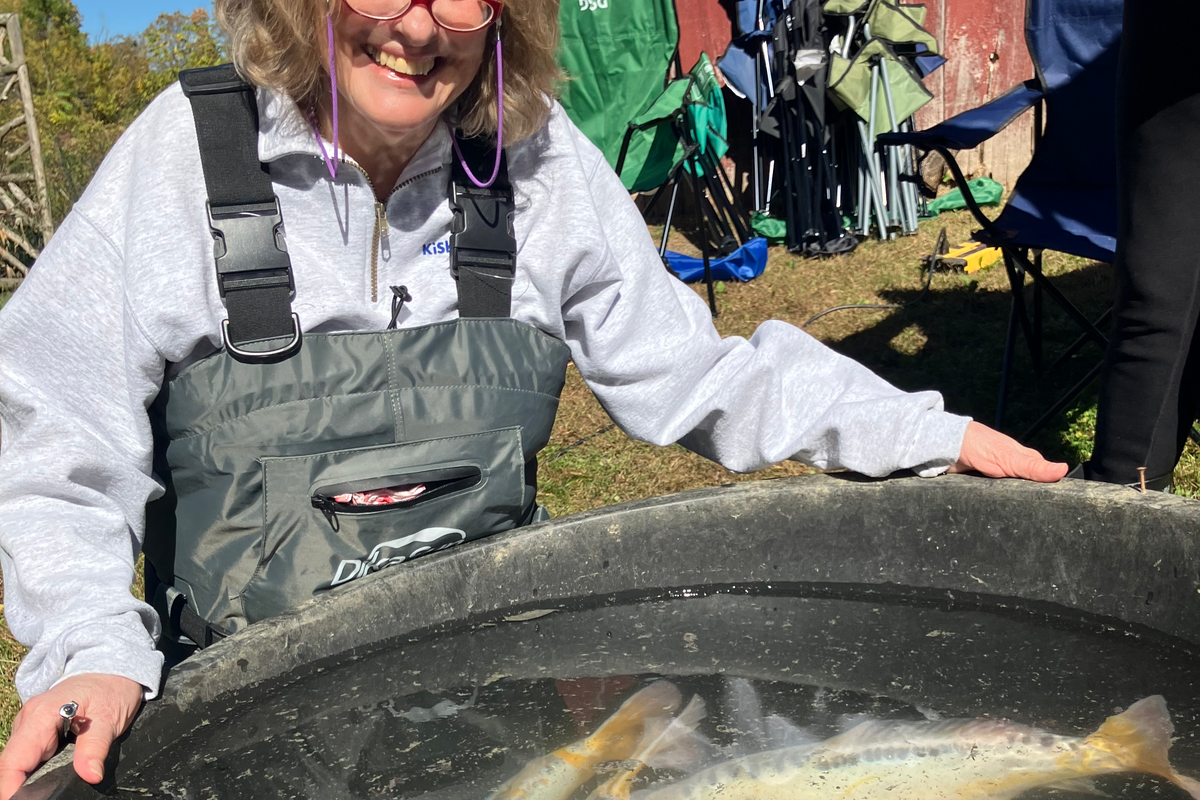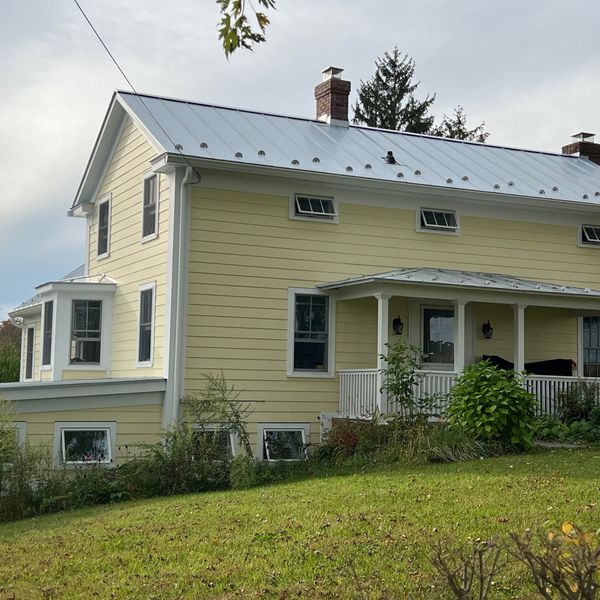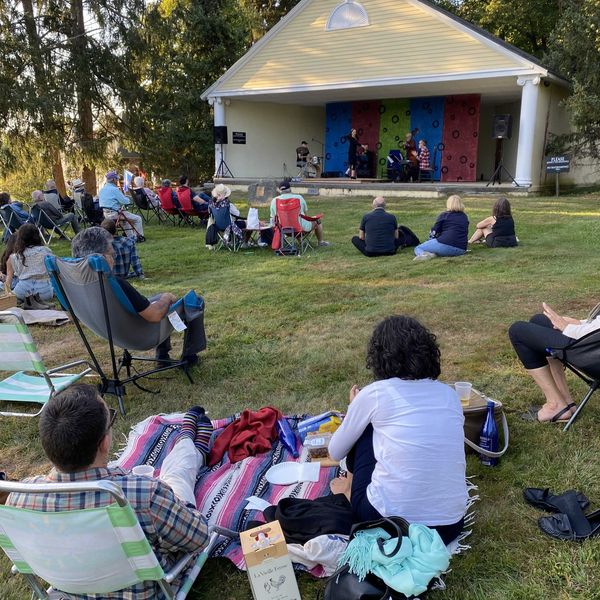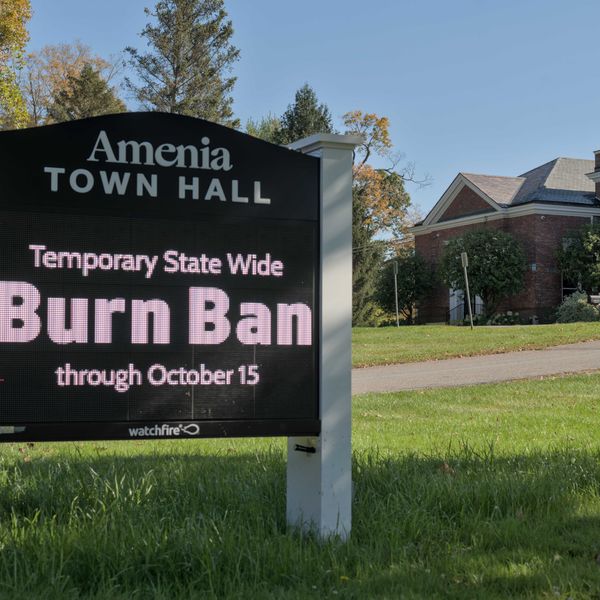Latest News
Celebrating agriculture
Oct 15, 2025
Photo by Nathan Miller
PINE PLAINS — The Pine Plains FFA Ag Fair brought a crowd to the high school on Church Street Saturday, Oct. 11.
Kicking off the day was the annual tractor pull, attracting a dedicated crowd that sat in bleachers and folding chairs for hours watching Allison-Chalmers, International Harvesters and John Deeres compete to pull the heaviest weights.
A large collection of food was on offer from the Pine Plains FFA and each one of the classes in the Pine Plains Central School District. The football team was selling pickles.
Stissing Mountain High School Principal Christopher Boyd enjoyed a dip in the dunk tank to raise money for the Pine Plains teachers’ union-sponsored scholarship.
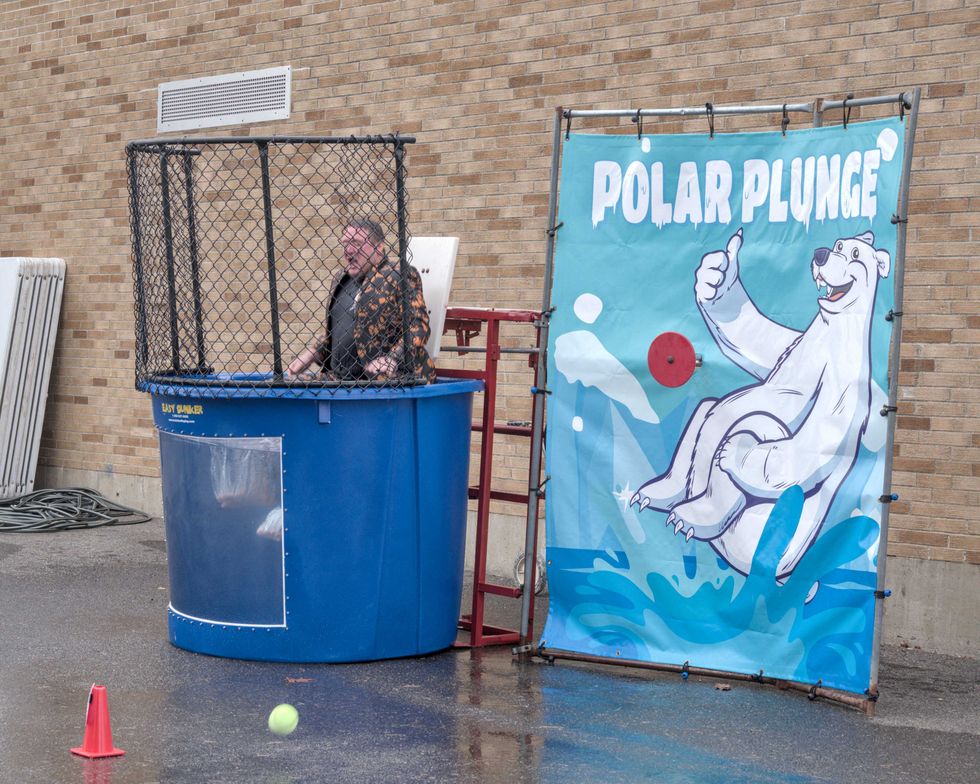
Keep ReadingShow less
The Rev. AJ Stack, center right, blessing a chicken at the pet blessing event at St. Thomas Episcopal Church in Amenia on Saturday, Oct. 4.
Photo by Aly Morrissey
AMENIA — After serving more than five years as Priest-in-Charge of St. Thomas Episcopal Church in Amenia, the Rev. AJ Stack announced Tuesday, Oct. 7, that he will resign from the church and Food of Life/Comida de Vida pantry. His last day at his current post will be Sunday, Nov. 2, the conclusion of the Feast of All Saints.
The news was shared in two emails from Stack — one to Food of Life pantry subscribers and volunteers, and another to parish members.
“I write tonight with difficult news, and I wanted you to hear it from me as soon as the Vestry and I had a chance to meet,” he wrote. “After much prayer and careful discernment, I have submitted my resignation to the Vestry as Priest-in-Charge of St. Thomas, and therefore as Executive Director of Food of Life/Comida de Vida.”
Stack provided few details about his departure. At time of publication, he had not announced his next steps but said the decision was “not sudden,” and followed careful consideration over a period of months. He will not be leaving the area or the diocese.
An announcement about his path forward and the transition process is expected soon. In the meantime, Stack said he remains “fully present” at the church, and the food pantry services will continue without interruption.
Stack expressed gratitude for the community and the growth of St. Thomas’ mission during his tenure. “Together we have welcomed new neighbors and strengthened our outreach in meaningful ways,” he said. “I trust that good work will continue.”
He joined St. Thomas in March 2020 and guided the church and community through the challenges of the COVID-19 pandemic. In a recent interview with The News about the food pantry, Stack estimated that it serves 653 individuals from 156 households each week, highlighting a significant contribution to the community.
The announcement was met with messages of reassurance from pantry volunteers. Jolly Stewart, a Vestry member and volunteer, wrote to the community with words of reassurance following the announcement. “I have complete faith in the strength of the parish of St. Thomas,” she wrote. “Our history shows how we have done this time and again, each time becoming more than what we were before. We can, without a doubt, do this now.”
Keep ReadingShow less
MILLERTON — Ten candidates for office in the Nov. 4 election will answer questions from Dutchess County voters at a candidate forum on Friday, Oct. 24, at the Annex at the NorthEast-Millerton Library located at 28 Century Blvd.
The forum, which is sponsored by the library, will be held from 6 to 7:30 p.m.
Candidates for local and county offices will answer questions from residents in attendance or from residents who have submitted questions in advance.
“We’re excited to keep the tradition of the candidate forum going,” said Rhiannon Leo-Jameson, director of the library. “Some years we can’t always get candidates together.”
This year’s forum will include:
Rachele Grieco Cole, a Democrat, and Chris Mayville, a Republican, who both are running uncontested for the North East Town Council;
Casey McCabe, a Democrat, also running uncontested for North East Justice.
Among Dutchess County races:
Tracy MacKenzie, who is endorsed by Republicans and Democrats, is running uncontested for Dutchess County Family Court Judge;
Kara Gerry, a Democrat, and Ned McLoughlin, a Republican, are in a contest for a Dutchess County Court judgeship currently held by McLoughlin.
Chris Drago, D-19, and Tonya Pulver, a Republican, are competing to represent Dutchess County’s19th District seat currently held by Drago.
Democratic incumbent Dan Aymar-Blair and Will Truitt, the Republican chair of the county legislature, are competing for the Dutchess County Comptroller position currently held by Aymar-Blair.
Leo-Jameson is encouraging questions for the candidates to be submitted in advance, which will not be revealed to candidates beforehand. Dutchess County residents may pose questions during the forum. To submit a question on the library’s website, go to the calendar at nemillertonlibrary.org and find the link in the Oct. 24calendar entries.
The format calls for opening statements from the candidates, followed by questions from residents, and candidates will be able to stay after the forum to answer questions personally.
Keep ReadingShow less
Koi harvest
Oct 15, 2025
Photo by Leila Hawken
The “Elusive Ki Shusui” koi were temporarily relocated into a tub before being returned to their home pond at Maxine Pietro’s annual koi harvest at Broccoli Hall Farm in Amenia on Friday, Oct. 10. Speaking of their yellowish beauty, Pietro is pictured pointing out that the fish are scaleless but for scales that grow along the “zipper” on each fish’s dorsal ridge. The koi in the photo are estimated to be 6 or 7 years old.
loading


